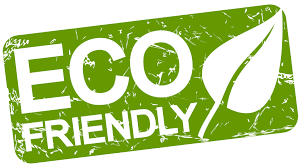
Here at Oosyn our job is to explore beauty from different angles. From technology to humans, product development, product application, tools, and so on. Today we want to cover how beauty brands are adapting to post-pandemic consumers. And the steps taken by beauty companies to ensure happy consumption.
While putting this piece together, colleagues and writers debated on the possibility of it being the second part of our previous post “Styling today the women of tomorrow”. Some readers may find it similar while others will consider it an independent piece to reflect on. In any case, there is need to mention environmental and health contexts as major promoters of this piece. Environment and health have laid the ground work for us to explore ethical consumption, and the possible benefits of ethical consumption in African countries.
One of the lessons we’ve learnt during the pandemic, including recent developments in supply chain, is that consumers need to start taking into consideration the cost and the environmental footprint of goods and purchases. To create awareness among African consumers this post highlights 5 steps and benefits of ethical consumption in beauty and fashion.
1- Identify manufacturer’s location
The easiest way to get this information is by reading product labels. For example, Unilever is taking huge step further to become more competitive in core markets by listing manufacturing locations for each of their hair products. This way, consumers can tell if a product was manufactured in or outside the market.
2- Source from areas that have the lowest carbon footprint
Most beauty companies are concern about creating a more sustainable tomorrow for employees; and are taking measures to curb carbon footprints. Ethical consumption would require consumers to consume locally, increase purchases from local manufacturers, and contribute to social development of communities. Rural areas stand to benefit from these initiatives due to registered low carbon footprint and low labour pricing.
3- Follow the United Nation policies
The United Nations Ethical fashion initiatives promotes ethical manufacturing and consumption of fashion. The UN encourages African brands to comply with these policies in order to sell fashion worldwide. While the United Nations guidelines are not directly outlined for the final consumer, it is important for fashion consumers to understand the relevancy of these guidelines which promotes brands that have followed and practiced these policies. Brands are allowed to provide this information on labels.
4- Adhere to supply chain standards
Ethical consumption does not jeopardise quality. In fact, ethical consumption would benefit from increasing quality and product life-span because it incorporates slow consumption into buying habits. Other way of ensuring quality standards is that brands are taking steps to provide detailed policies on environmental welfare, human welfare and animal welfare on labels. Make-up brands have been very proactive in this area and have been the ones to advocate for animal welfare on products.
5- Understand beauty services
Beauty service in some way curbs compulsive consumption of beauty products because consumers are somehow forced to share products when receiving these services. For example an aesthetician may use one beauty product on several clients during different sessions. This habit of sharing products reduces waste and increases consumer satisfaction.
Blogger’s conclusion
Ethical consumption promotes informed consumers. With companies looking to become more competitive in core markets, ethical consumers will soon become the priority audience for ethical brands.
